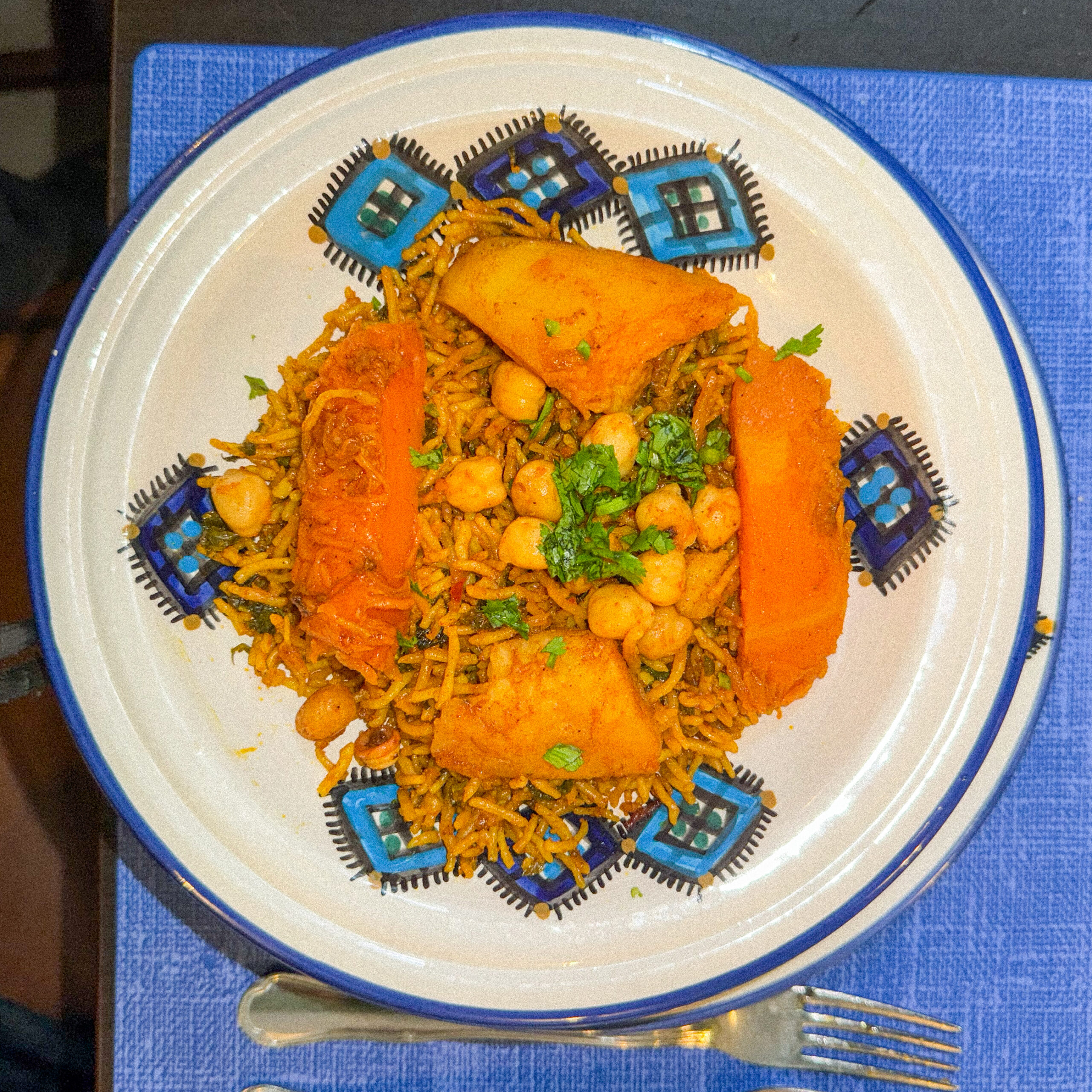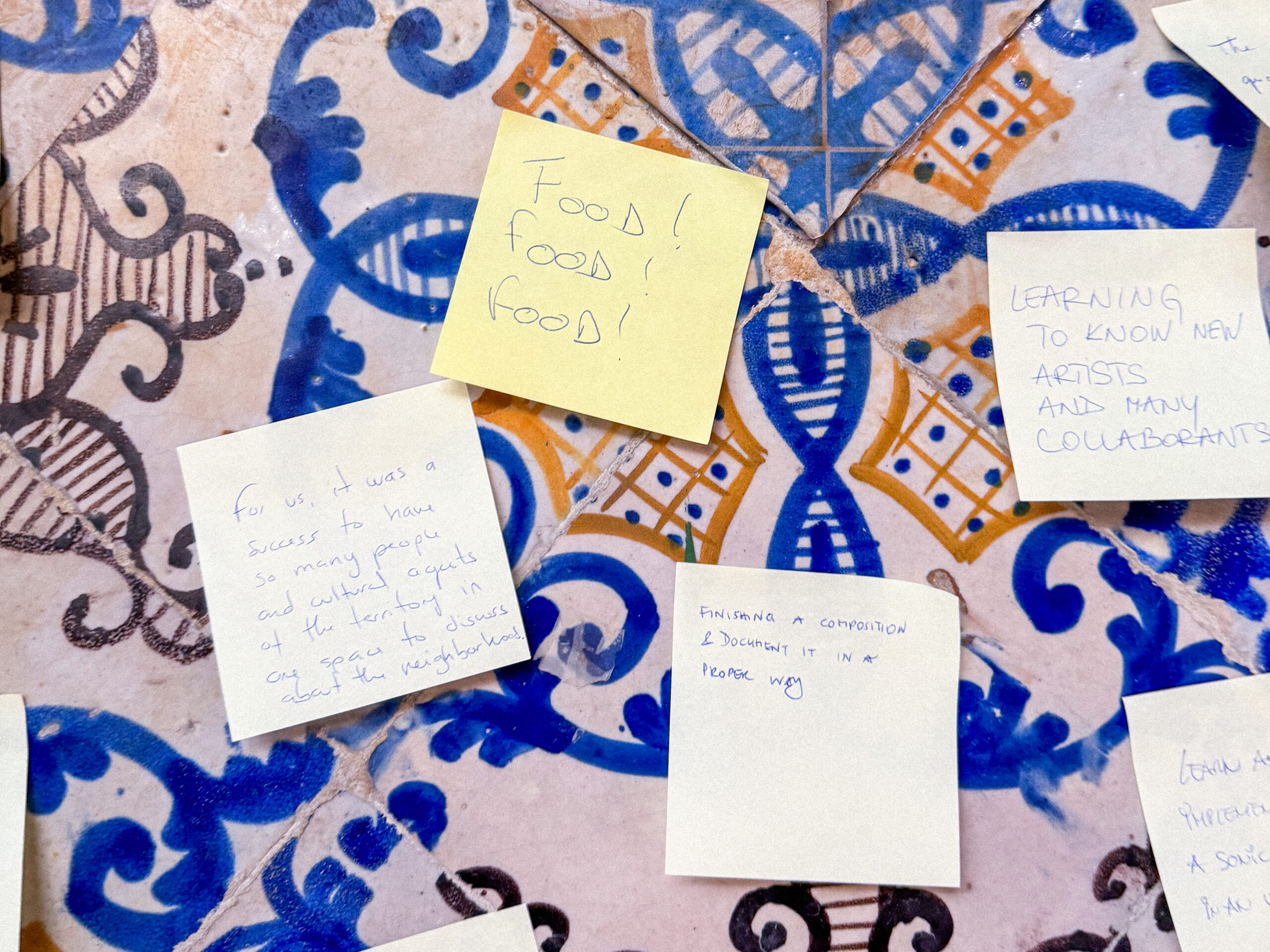Day 3 in Tunis: a culinary adventure
Three days in, and we have successfully embarked on a flavorful journey through Tunisian cuisine. For some of us, it was even the first thing we did upon landing.
Take Pierre and Fanch, for instance. Expecting to find sunshine, they arrived in the rain and were welcomed with a typical winter dish: Leblebi—a dish made of crushed bread, chickpea soup, tomato sauce, a generous amount of harissa, spices, and herbs. Nothing beats a spicy, comforting bowl!
Meanwhile, Clotilde and I had an unexpected introduction to local street food as our friendly cab driver gifted us Fricassé. He couldn’t let us without having tasted this very typical dish.
Team Favorites: the ultimate ranking
- Couscous reigns supreme. Ben is a fan and for Thomas, the lamb couscous was one of the best things he’s ever tasted.
- Pierre went for the sea version, embracing the fact that here in Tunis, seafood is always fresh from la pêche du jour.
- Danijela couldn’t get enough of calamari and fish, while Clotilde developed a special love for the smoky, spicy mechouia salad.
- And then there’s Chris, whose highlight was slightly different—a cold beer after a long day of work and intense listening. Priorities, right?
As Thomas wisely observed, portion sizes are all about perspective. In Tunisia, what’s considered a single portion might well be three in some other countries. But that’s the beauty of it—generosity is a language of its own, and here, it translates to warmth and welcome.
A taste of tradition: assidat zgougou
We wrapped up today’s feast with something truly special—Assidat Zgougou. Our restaurant owner took the time to share its origins: during a famine, the black seeds of the Aleppo pine from the northern forests were eaten for survival. Over time, Tunisian families transformed them into a dessert.
“Love it or not,” he said, “it’s not just about taste—it’s childhood, it’s culture, it’s history.” And with that, we took our last spoonful, savoring not just the dish, but the story that came with it.
Chahiyya tayyiba!

Photos credits: Clotilde Nogues

